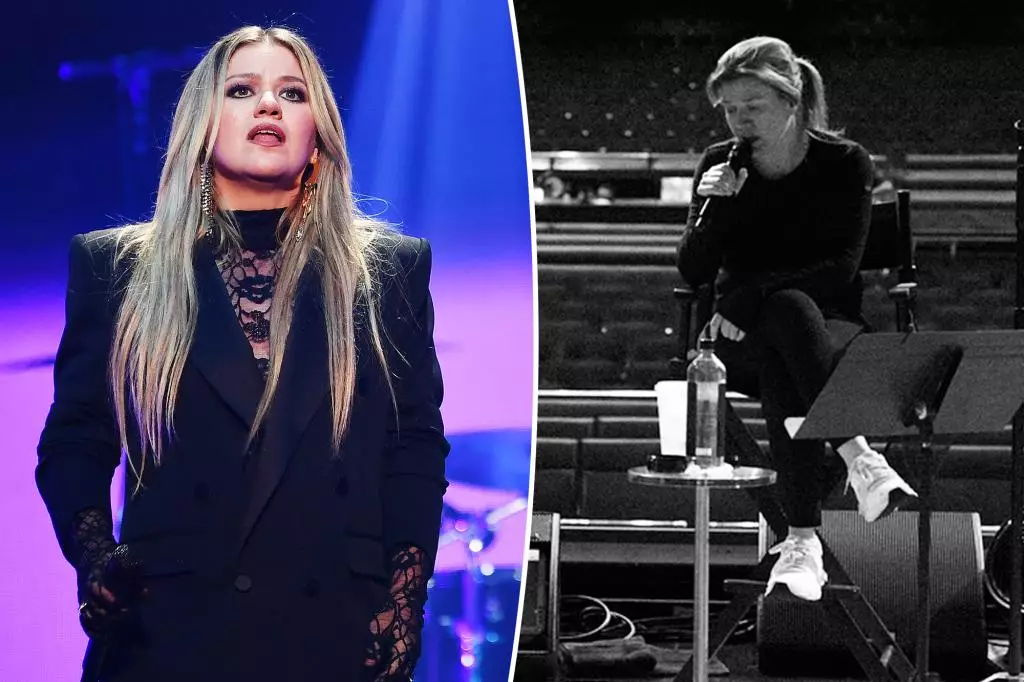Kelly Clarkson’s sudden withdrawal from her Las Vegas residency shocked fans and industry insiders alike. Yet, a closer examination reveals that the pressure behind the scenes might be greater than what the public perceives. What appears as a mere cancellation is, in reality, a reflection of the complex and often invisible toll that fame, rigorous schedules, and personal struggles take on artists. The story highlights the importance of understanding the human element behind the glittering veneer of stardom and pushes us to rethink how we support and respect our favorite performers.
The Impact on the Workforce: Respect and Compassion Matter
The news broke with Clarkson’s crew catching wind only through social media, a breach of professionalism that underscores a broader issue in the entertainment industry: the often-disposable attitude towards backstage workers. For those behind the scenes—sound engineers, stagehands, security—their work is a labor of passion that sustains the spectacle. The sudden cancellation, especially without prior communication, is not just a logistical snub but a blow to their dignity. This incident exposes a systemic neglect for the human beings who make perfection possible. Their feelings of betrayal and disappointment aren’t just about scheduling; they reflect a deep need for greater respect and acknowledgment from artists and management alike.
The Emotional Toll on Fans and the Artist’s Disconnect
Fans, especially those who traveled hundreds or thousands of miles, invest not only financially but emotionally into their experiences. Clarkson’s last-minute cancellation, occurring mere minutes before the show, left many devastated, tearful, and feeling abandoned. This highlights a growing issue: the lack of transparency from artists about their struggles. Instead of vulnerability, fans often encounter a facade of dedication and strength, which can mask deeper issues. Clarkson’s explanation that her voice needed rest hints at her own physical limits, yet the disconnect between her internal challenges and the expectations of her audience remains alarming. This event questions whether performers should be more open about their vulnerabilities, fostering a more empathetic connection rather than an image of untouchable perfection.
The Hidden Struggles Behind the Spotlight
Clarkson’s candidness about her vocal exhaustion and personal battles unveils a narrative that many celebrities silently endure. She’s battling vocal health issues that could threaten her career, compounded by her demanding schedule. Her personal life—marked by a challenging divorce and ongoing emotional battles—further compounds her stress levels. These aren’t just idle gossip fodder; they are real, pressing issues that reflect the toll of constant public scrutiny and relentless work routines. Clarkson’s experience is emblematic of a broader truth: artists are human, susceptible to burnout and mental health struggles just like anyone else.
Reevaluating Success and Support in the Entertainment Industry
The incident prompts a necessary conversation about how we define success for performers. Is a rigorous schedule justified at the expense of health? Should fans demand more accountability and transparency? For Clarkson, canceling was likely the last resort after warnings signs of vocal damage and personal fatigue. Yet, the industry’s obsession with spectacle and the public’s insatiable appetite for entertainment often overlook the cost to the individual’s wellbeing. Moving forward, it’s essential that industry leaders, management, and fans foster a culture of care—recognizing that the longevity of an artist’s career depends equally on physical health, mental resilience, and genuine support.
While celebrity cancellations are often dismissed as prima donna antics, Clarkson’s case urges us to see beyond the surface. Behind every last-minute decision is a human being fighting silent battles. This incident should serve as a wake-up call for both industry stakeholders and fans to prioritize compassion and understanding. Artists like Clarkson are vulnerable, not invincible. By acknowledging this reality, we not only help safeguard their wellbeing but also foster a more humane and sustainable entertainment landscape. The next time a star steps back, perhaps it’s time to listen—and show kindness—rather than critique.

